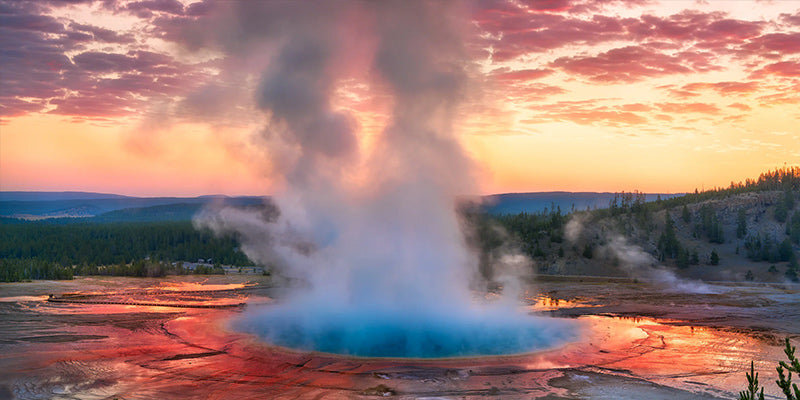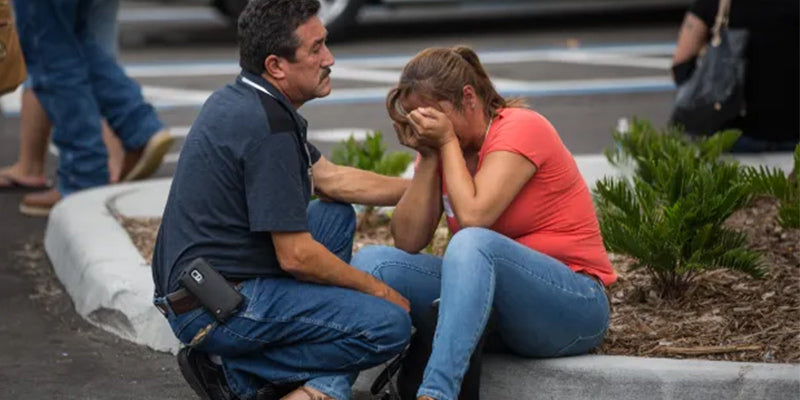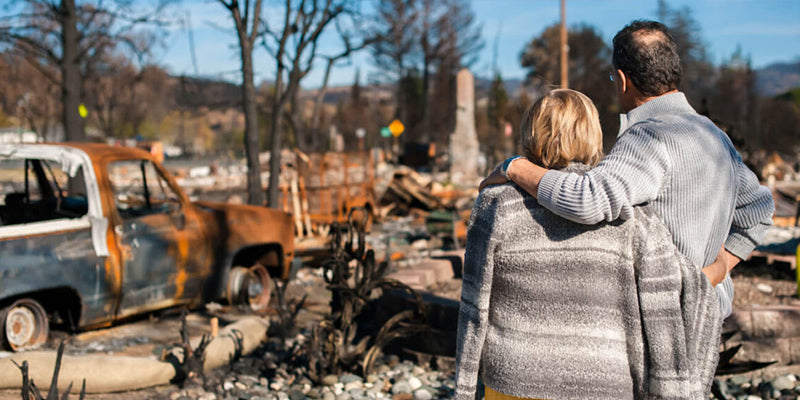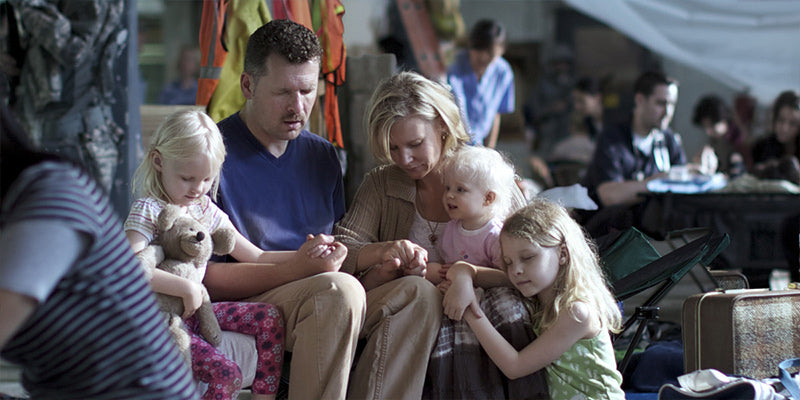The Role of Family in the Face of Unavoidable and Unpredictable Disasters
The Sudden Steam Eruption in Yellowstone National Park

On an otherwise tranquil day in Yellowstone National Park, a sudden steam eruption from one of the park's geysers shattered the serenity. The violent expulsion of steam and boiling water caught visitors off guard, leading to immediate evacuations and a heightened sense of urgency. This unexpected event underscored the raw and unpredictable power of nature. Despite extensive monitoring and research, such natural phenomena can strike without warning, highlighting our vulnerability and the necessity of preparedness.
Yellowstone's geothermal features, while awe-inspiring, serve as reminders of the latent power beneath the Earth's crust. The sudden steam eruption exemplifies the unpredictable nature of these forces and the profound impact they can have on human life, reminding us that even in the most controlled environments, nature can assert itself with little notice.

Facing Sudden and Unpredictable Natural Disasters
Natural disasters, whether they are earthquakes, hurricanes, tsunamis, or volcanic eruptions, share a common thread: their unpredictability. Despite technological advancements, accurately predicting the timing and impact of such events remains a significant challenge. When disasters strike, they often do so abruptly, leaving little time for preparation and causing widespread devastation.
For those caught in these disasters, the immediate aftermath is marked by confusion, fear, and a sense of helplessness. The suddenness of these events disrupts daily life, displaces populations, and leads to physical and emotional trauma. Key concerns include ensuring safety, securing essential resources, and obtaining medical care.
In these moments of crisis, the role of family becomes crucial. Families provide not only physical but also emotional support, serving as a source of stability and strength. The concept of family extends beyond blood relations to include all those bound by love and mutual support. In the face of unavoidable and unpredictable disasters, families are the cornerstone of resilience and recovery.

The Role of Family During Disasters
-
Emotional Support and Stability:
- Providing Comfort: In the chaotic aftermath of a disaster, the presence of family members offers comfort and reassurance. The familiar faces and voices of loved ones can be incredibly soothing, helping individuals manage fear and anxiety.
- Maintaining Normalcy: Families strive to maintain a semblance of normalcy amidst the disruption. Engaging in routine activities, such as sharing meals and conversations, can provide a sense of order and control.
-
Physical Safety and Security:
- Shelter and Protection: Families provide immediate shelter and protection during disasters. Whether finding a safe place during the event or securing temporary housing afterward, family members work together to ensure everyone's safety.
- Resource Sharing: In times of scarcity, families pool resources such as food, water, and medical supplies. This collective approach ensures that everyone's basic needs are met, even in challenging circumstances.
-
Communication and Coordination:
- Information Sharing: Effective communication within families is critical during disasters. Sharing information about evacuation plans, safety procedures, and available resources helps in making informed decisions.
- Coordinating Efforts: Families coordinate efforts to navigate the aftermath of a disaster. Dividing tasks, such as securing supplies, seeking medical help, or reaching out to extended family and friends, ensures efficient management of the crisis.
-
Psychological Support and Coping Mechanisms:
- Emotional Expression: Encouraging open expression of emotions helps family members process their experiences. Discussing fears, losses, and hopes can facilitate emotional healing.
- Support Networks: Families often form the nucleus of broader support networks. Connecting with neighbors, community groups, and aid organizations amplifies the support available during recovery.
-
Long-term Recovery and Rebuilding:
- Rebuilding Together: The process of rebuilding after a disaster is daunting, but families working together make it more manageable. From repairing homes to re-establishing routines, collective efforts accelerate recovery.
- Planning for the Future: Families play a key role in planning for future resilience, including developing emergency plans, building stronger structures, and fostering a culture of preparedness.
Case Studies and Examples

Case Study 1: The Aftermath of Hurricane Katrina
In 2005, Hurricane Katrina devastated New Orleans and surrounding areas, displacing thousands. Amid the chaos, families were essential units of survival and recovery. Despite losing homes and possessions, family members found strength in unity, navigating floodwaters, sharing resources, and providing emotional support. Long-term recovery saw families rebuilding homes and lives together, showcasing remarkable resilience.
Case Study 2: The Earthquake in Haiti
The 2010 earthquake in Haiti caused widespread destruction and loss of life. Families played a critical role in the immediate aftermath, searching for missing relatives, caring for the injured, and sharing resources. The sense of community and family ties were instrumental in coping with trauma. International aid efforts were more effective when they supported family units, providing resources that families could distribute among themselves.
Case Study 3: The Tsunami in Japan
The 2011 tsunami in Japan, triggered by a massive earthquake, displaced hundreds of thousands. Families were the primary source of support, providing shelter, sharing food and water, and offering emotional comfort. Japan's strong cultural emphasis on family and community facilitated coordinated recovery efforts, highlighting the vital role of family in disaster response and resilience.
Conclusion
The sudden steam eruption in Yellowstone National Park is a stark reminder of the formidable power of nature. In the face of such events, individuals and communities are often left vulnerable and uncertain. However, the family unit stands as a beacon of hope and resilience.
Families provide emotional support, physical safety, and a sense of stability in chaos. They facilitate communication, coordinate efforts, and offer psychological support, crucial for survival and recovery. Moreover, families play an essential role in long-term rebuilding and future preparedness, ensuring communities can bounce back stronger from disasters.
Recognizing the indispensable role of family during disasters underscores the importance of fostering strong family bonds and community connections. By investing in these relationships and prioritizing family unity, individuals and societies can enhance their resilience, ready to face the unpredictable challenges that nature may bring.






